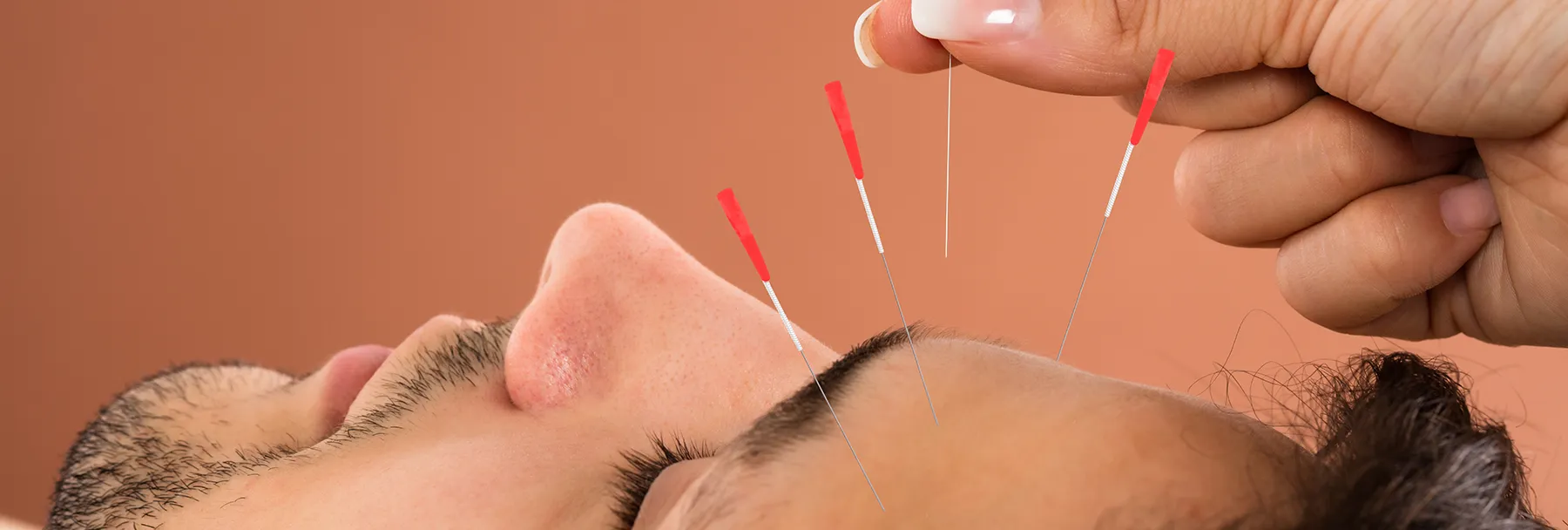Why Acupuncture Works

If acupuncture once raised eyebrows in the medical community, it’s now becoming mainstream.
Just ask Glenda Harris, Ph.D., a senior acupuncturist at Sylvester Comprehensive Cancer Center, part of the University of Miami Health System. In her 23 years as a practitioner, Harris has seen growing acceptance of this ancient Chinese healing method. “People used to be afraid to discuss it with their doctor, but now, more doctors are referring patients for treatment. Some sources still claim acupuncture only has a placebo effect, but if that were true, it wouldn’t have been in use for thousands of years.”
How acupuncture works
In essence, this time-honored treatment enhances the body’s natural functions and ability to heal. It’s performed by inserting tiny, sterile needles into specific points on the body. The Chinese believed that stimulating these points re-balanced the body’s energy or “chi”.
“Everything in the body is made of atoms and molecules,” says Harris. “If there weren’t electrons in our bodies, we couldn’t do an MRI.” In simple terms, this needling method stimulates the nerves, muscles, and connective tissue, boosting the body’s natural painkillers and immune responses.
And now there’s science to prove it. In brain scans and in blood tests, acupuncture demonstrated a reduction in inflammation and pain.
What does acupuncture treat?
Name a complaint or condition and it’s likely it will benefit from this alternative healing method. Here’s a brief list of commonly treated conditions:
- Pain
- Fibromyalgia
- Migraines
- Anxiety and depression
- Fatigue
- Inflammation
- Digestive problems
- Allergies
How does it help cancer patients?
In her work with cancer patients, Harris sees a “huge difference” in how they respond to chemotherapy after receiving treatment. This is especially true for people going through long-term chemotherapy. “By decreasing inflammation, acupuncture completely removes the joint pain caused by chemo. This has been documented in studies that measured the blood of chemo patients.” Besides pain relief, it effectively treats a spectrum of conditions brought on by cancer treatment, including nausea and vomiting. It also helps counteract the fatigue, anxiety, and depression that can accompany cancer. “Acupuncture releases endorphins and increases serotonin and dopamine. You can’t always change the stress in your life but you can change the way you respond to it.”
Change is an essential component of this therapy. “Acupuncturists talk about ‘stems and branches’, meaning, you must treat the stems or the underlying condition. We also look at patterns. For example, does the person retain water or do they feel cold or hot all the time? We want to understand how they developed the condition.”
If you’re contemplating acupuncture, you should know that it’s not a quick fix. “It may take one to two months of weekly or bi-weekly sessions, depending on your situation,” Harris says. To understand your underlying conditions or health imbalance, your practitioner should do a thorough physical assessment and discuss your health history.
Is acupuncture right for me?
“People shouldn’t be afraid to try this healing method, especially in the early stages of a problem such as knee pain, before they have invasive surgery. It’s not painful and there are no side effects, but do tell the practitioner if you’re taking blood thinners.”
To find a licensed practitioner, check the American Society of Acupuncturists website. Harris also suggests asking around for recommendations, reading reviews on Healthgrades, and reviewing the practitioner’s website to see if they have a background in tai chi or qigong. Both of those health-promoting practices balance the body’s energy systems. “Most acupuncture schools insist on students taking tai chi or qigong,” Harris says.
Nancy Moreland is a contributing writer for UHealth News Service. She has written for several major health care systems and the Centers for Disease Control and Prevention. Her writing also appears in the Chicago Tribune.
Tags: acupuncture treatment, cancer, Glenda Harris, Sylvester Comprehensive Cancer Center
